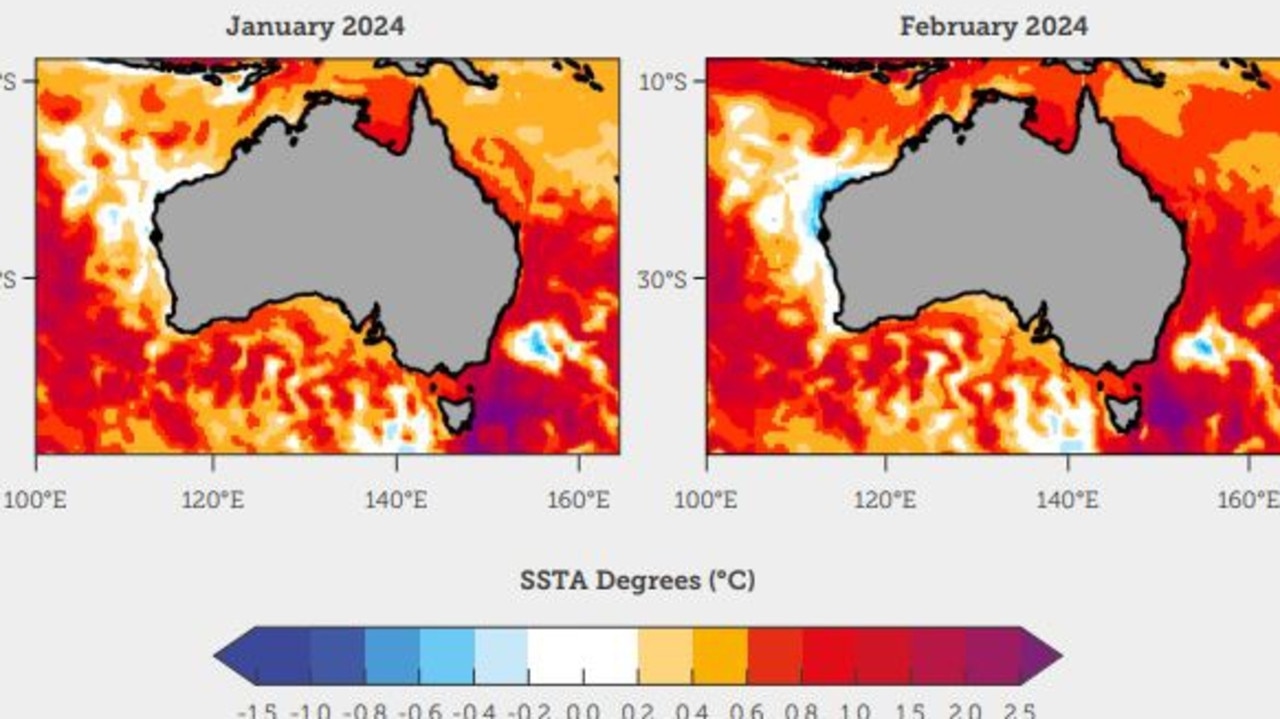Code Blue report: Climate Council declare world’s oceans are in crisis
With a chunk of sea ice the size of WA missing from Antarctica and masses of giant kelp lost off Tasmania’s coast, the state of our oceans is in crisis mode, a new report has revealed.

With a chunk of sea ice the size of Western Australia missing from Antarctica and masses of giant kelp lost off Tasmania’s coast, the state of our oceans is in crisis mode, a new report has revealed.
The Climate Council’s new report, Code Blue: Our Oceans in Crisis revealed the state of Earth’s oceans – particularly Australian oceans – are in crisis.
Research director and report author, Dr Simon Bradshaw said the science behind what they were seeing could not be “any clearer”.
“Our oceans are in deep trouble,” Mr Bradshaw said.
“Today the ocean is absorbing excess heat energy that’s equivalent to five Hiroshima bomb explosions every second; or enough to boil Sydney Harbour every eight minutes.”

It comes as scientists have declared 2023 as the hottest year globally on record. Climate Central scientists found average global temperatures were over 1.3C above pre-industrial levels from November 2022 to October this year. Scientists are concerned El Niño will exacerbate temperatures.
University of Tasmania’s Institute of Marine and Antarctic Studies scientist and Centre for Marine Socioecology director and report author Professor Gretta Pecl said the report included research on a missing Antarctic chunk of sea ice the size of WA.
“I find that pretty astronomical,” she said.
“Our oceans absorb 90 per cent of that additional heat that we trap in the atmosphere with our greenhouse gas emissions and it’s leading to some pretty massive impacts.
“Almost the entire Australian coast is warming faster than the global average – in the northern part of the country it’s one to two times the global average. In WA, it’s around three times and in southeastern Australia, it’s almost four times the global average.”
Professor Pecl said Tasmania had lost 95 per cent of its giant kelp forests because of the major climate-driven effects.

“Our giant kelp used to be so prolific that it had to be marked on maps so ships could avoid it because it was such a dominant feature of our coasts and now it’s been reduced to these tiny little patches.
“We are almost 100 per cent guaranteed to have a massive heatwave all down our Eastern seaboard and that could have potentially catastrophic implications for conservation for fisheries for culturally important species.”
The report made four key recommendations which include achieving net zero emissions by 2035, reforming national environmental laws, increasing support for communities affected by climate change and protecting the ocean as a climate solution.

Climate and ocean scientists are calling to end fossil fuel projects to “limit future harm” to give ecosystems a “fighting chance”.
“It would cost much less for us as a society to rapidly reduce our emissions, then it will cost for us to constantly respond to extreme event after extreme event, and deal with the massive biodiversity loss and impacts that climate change will bring,” Professor Pecl said.
“What everybody can do to protect and restore our natural systems is beach clean-ups, landcare days, coastcare days and participating or supporting citizen science projects. It will not stop climate change, but it will help those systems be as resilient as possible.”




